Kit Camp - Ace 360 (LOWAC FOUNDATION)
Building Brighter Futures for Women and Children
According to data from the National Bureau of Statistics, the youth unemployment rate in Nigeria was 42.5% in Q2 2020, with many young people struggling to find meaningful employment. The situation is no different in Edo State, where a significant number of young people face challenges in accessing quality job opportunities. This is partly due to a lack of soft skills, such as communication, teamwork, and problem-solving, which are essential for success in the workplace. Many young people in Edo State are not adequately equipped with these skills, making it difficult for them to compete in the job market and secure meaningful careers.
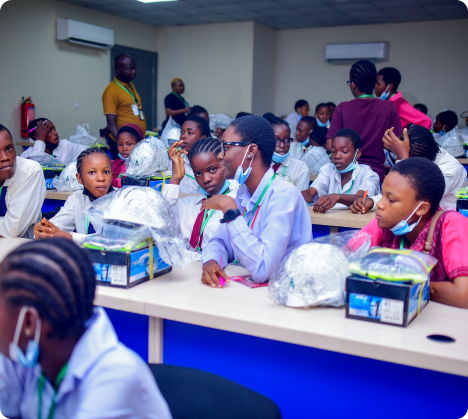
To address the soft skill gap and increase the chances of young people in Edo State to develop meaningful careers, we propose implementing a soft skills training program. This program will provide young people with training in critical soft skills such as communication, teamwork, leadership, problem-solving, and critical thinking. By developing these skills, young people in Edo State will be better prepared to compete in the job market and secure meaningful employment opportunities. The program will be designed to be accessible to a wide range of young people, including those who are not currently enrolled in formal education or training programs. By investing in the development of soft skills in young people, we can help to reduce youth unemployment and support the growth of a skilled and productive workforce in Edo State.
To address the soft skill gap and increase the chances of young people in Edo State to develop meaningful careers, we propose implementing a soft skills training program. This program will provide young people with training in critical soft skills such as communication, teamwork, leadership, problem-solving, and critical thinking. By developing these skills, young people in Edo State will be better prepared to compete in the job market and secure meaningful employment opportunities. The program will be designed to be accessible to a wide range of young people, including those who are not currently enrolled in formal education or training programs. By investing in the development of soft skills in young people, we can help to reduce youth unemployment and support the growth of a skilled and productive workforce in Edo State.
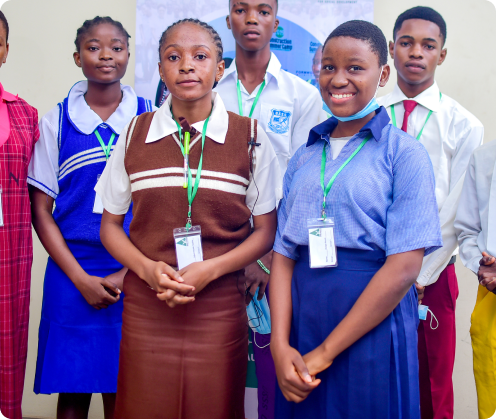
To address the soft skill gap and increase the chances of young people in Edo State to develop meaningful careers, we propose implementing a soft skills training program. This program will provide young people with training in critical soft skills such as communication, teamwork, leadership, problem-solving, and critical thinking. By developing these skills, young people in Edo State will be better prepared to compete in the job market and secure meaningful employment opportunities. The program will be designed to be accessible to a wide range of young people, including those who are not currently enrolled in formal education or training programs. By investing in the development of soft skills in young people, we can help to reduce youth unemployment and support the growth of a skilled and productive workforce in Edo State.

Why train young people in soft skills:
1. Soft skills are critical for success in the workplace:
Research has shown that soft skills, such as communication, teamwork, problem-solving, and critical thinking, are essential for success in the workplace. Employers often prioritize candidates with strong soft skills, as they are more likely to be able to adapt to new situations, work well with others, and effectively solve problems.
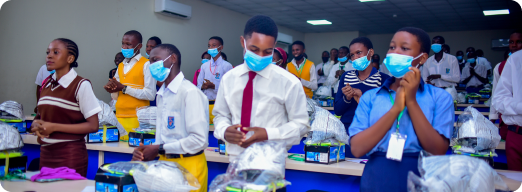
2. Soft skills are often lacking in young people:
Many young people entering the workforce lack the soft skills necessary for success. A study by the National Association of Colleges and Employers found that the most important skills employers look for in new hires are soft skills, yet only 40% of graduating seniors were rated as having adequate levels of professionalism and work ethic.

2. Soft skills are often lacking in young people:
Many young people entering the workforce lack the soft skills necessary for success. A study by the National Association of Colleges and Employers found that the most important skills employers look for in new hires are soft skills, yet only 40% of graduating seniors were rated as having adequate levels of professionalism and work ethic.

3. Soft skills are linked to better academic outcomes:
Research has shown that students who develop strong soft skills are more likely to achieve better academic outcomes. For example, a study by the Collaborative for Academic, Social, and Emotional Learning found that students who participate in social and emotional learning programs had improved academic performance and better attitudes towards school.
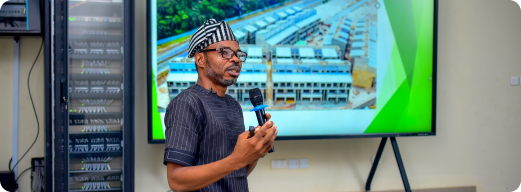
4. Soft skills development can have positive long-term outcomes: Developing soft skills in young people can have positive long-term outcomes, both in terms of their personal and professional lives. A study by the Partnership for 21st Century Learning found that soft skills such as communication, collaboration, and critical thinking are linked to higher earnings and better job outcomes later in life.

4. Soft skills development can have positive long-term outcomes: Developing soft skills in young people can have positive long-term outcomes, both in terms of their personal and professional lives. A study by the Partnership for 21st Century Learning found that soft skills such as communication, collaboration, and critical thinking are linked to higher earnings and better job outcomes later in life.

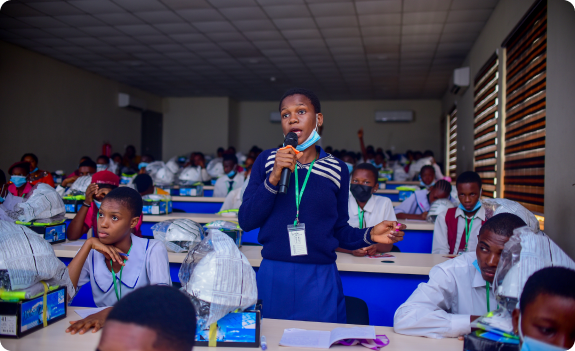
Objectives
- To train young people in basic soft skills needed to maneuver the current workplace dynamics.
- To instill work-appropriate principles and values in youths.
- To facilitate mentorship for these young people with industry leaders and professionals in their dream industries.
Methodology
The LOWAC Foundation team will incorporate facilitator-led lessons with both physical and virtual engagement strategies. Participants will enjoy the benefit of close mentoring and coaching and work in teams to deliver capstone projects in areas that highlight their growth and learning progress. The learning methods include case studies, physical interactions, topic-based learning sessions, one-on-one consultations, team bonding activities, and personal effectiveness exercises, among others. Participants will have the opportunity to take part in internships and understudy activities designed to challenge them along the lines of the skills they have learned.
Expectation
The project will reach out to over 100 young people aged 18 to 25 in Benin City annually, including undergraduates and graduates from various tertiary institutions across Edo State. The project’s training sessions are divided into four batches that each last three (3) months, with 25 participants in each batch. The sessions include a mix of in-person and online training, case studies, hands-on activities, and capstone project activities. The project covers eight (8) weeks of physical and virtual training and four (4) weeks of capstone project activities.
Project Activities
- Opening Conference
- Physical training sessions once a week (weekends)
- Virtual mentorship/accountability group sessions once a week (mid-week)
- Internship training placements (last four weeks)
- Group project and pitch (closing ceremony)
- Closing Ceremony (certifications and awards)
Curriculum
- Problem Solving Skills
- Critical Thinking
- Team Building and People Management
- Communications Skills
- Proposal and CV writing
- Work Ethics
- Corporate Social Values
- Project Management
- Corporate Social Values
Project Team
- Project Manager
- Facilitators (Trainers and Intern Managers)
- Mentors
- Partners Organisation







